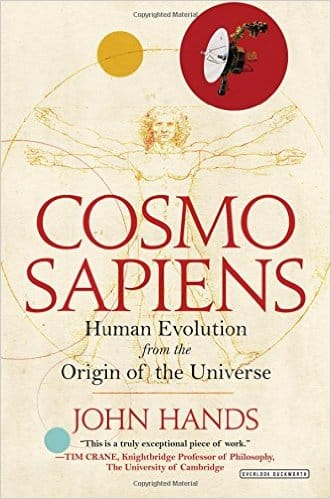Revolutionary scientific paradigms were first opposed with great force. Gregor Mendel’s genetics was ignored for 20+ years. Ignaz Semmelweis was thrown out of the Vienna General Hospital for 
His colleagues mocked him for suggesting there might be critters so tiny you can’t even see them, multiplying right there in his maternity ward.
Einstein’s theory of relativity sounded crazy. The Big Bang theory was met with derision; the term ‘Big Bang’ was intended as an insult. Widespread acceptance took half a century.
Is Darwinism the same, but only taking longer?
NO.
Old-school Darwinism is in a category by its problematic self. Darwinism has been plagued with ten times more problems than any other theory in the history of science. There is not a close second.
Here in Chicago, there used to be a group, headed up by Matt Lowry, called “The Chicago Darwin’s Bulldogs.” Darwinism is the only scientific theory that has needed bulldogs to stay alive. Other theories were able to vindicate themselves without legions of non-scientist bulldogs working for free, thank you very much.
What’s going on?
Before I explain, I must be emphatically clear that evolutionary events are demonstrable fact. Not just theory. Sorry, but the creationists have missed this, and it’s a big one. Evolution experiments have succeeded in nature and in the lab thousands of times. Chapters 11-16 of my book Evolution 2.0 document these experiments in detail: New species, radical adaptations in real time, cells re-arranging their DNA in 100,000 pieces in mere hours – all documented.
But all these experiments are post-Darwinian. They are highly organized and profoundly adaptive. Not only do these results depend on systems that Darwinism denies exist, they serve to discredit traditional Darwinian theory.
Old-school Darwinian theory insists mutations occur “willy nilly” with no plan or purpose.
Actual experiments show plants and animals respond directly to threats in minutes, days or weeks. With precision. Often with immediate results.
This is why you have to polish off your vial of antibiotics. Cuz if you don’t kill them critters dead, bugs become superbugs. In as little as 20 minutes.
Evolution doesn’t take 60 million years. When conditions are bad, evolution kicks in with fists of fury. An illness can balloon into regional epidemic in days.
Your immune system does the exact same thing back.
The retort from Darwinists is: “Militant religious fundamentalists are keeping science stuck in the dark ages. Those poor superstitious morons are unable to accept what scientists have known all along.”
Well, to a certain extent they have a point. Yes, many religious folks have no idea what these amazing evolutionary systems are capable of.
But as for the accusation that it’s only religious yokels, guess again. If you dig through Jerry Fodor’s “What Darwin Got Wrong,” or a stack of similar books, you’ll find critics from every imaginable point on the religious and political spectrum.
Fodor is an atheist; you’ll find agnostics, Jews, Christians, Hindus, New Agers in this group. Along with a disproportionately large number of doctors, dentists, engineers, computer programmers and artists. These groups are statistically likely to doubt Old-School Darwinism… the paper mâché version of evolution evangelized by Richard Dawkins & Jerry Coyne. And it’s not because of religion. It’s because of experience and common sense.
The “Third Way of Evolution” movement is an astute group of credentialed scientists who go out of their way to distance themselves from creationism and Intelligent Design, yet insist evolutionary theory is due for a massive overhaul.
Such criticisms are not new. Books exposing holes in Darwinism continue to appear every month, but the oldest of its kind I’ve found is called “Evolution Old and New” by Samuel Butler. It was written in 1882. Old-School Darwinists are still dodging issues Butler identified 134 years ago.
So… what’s the real problem with Darwinism?
The problem is, traditional Darwinism asserts that “chance and selection” can achieve nearly anything you can imagine. All you need is random DNA errors, and with no other input, guidance or coordination, and you get eyes, ears, limbs, immune systems and everything else you see in biology.
This is article of deeply irreligious, fanatical, zealous faith.
Why? Because chance and selection alone are useless in every technological system we build and understand. Everybody who builds stuff for a living knows this. Chance and selection alone do not write or improve computer software for example. Ever.
Anyone who has personally experimented with Genetic Algorithms knows it takes almost as much work to program a Genetic Algorithm fitness function (=specify the success goal for the program) as it is to skip all that and just write the software yourself.
Anyone employed in the field of software testing will attest that it takes three times more code to write a program that tests software, than the program that you are testing. So much for Natural Selection being able to do “anything.”
The proper British term for Richard Dawkins Jerry Coyne Old-School Darwinism is:
Bollocks.
If you’ve experimented with Genetic Algorithms, you also know they often get stuck and can’t get unstuck without outside intervention from the programmer. The fact that biology evolves without outside intervention is impressive indeed.
Do you suppose we should get on with finding out what’s going on under the hood? This is why I applaud the work of people like Craig Venter, who does real experiments instead of arguing ideology.
John Hands’ impressive new book CosmoSapiens explores a slew of big-picture science questions, and documents the search for a “theory of everything.”
This tome (which is easily taken in small pieces) canvasses most major disciplines and includes several chapters about evolutionary biology.
Mr. Hands, an outsider, probes into the many problems with Neo-Darwinism and is met with fierce resistance from Old-School defenders of the status quo.
He reports on Lynn Margulis’ symbiogenesis theory of biological merger-acquisitions:
“When two or more different kinds of organism merge their identities, the process generates novel behaviors and morphologies: new tissues, new organs or metabolic pathways, and new groups of organisms, including new species.
“Margulis found it difficult to get her work published in mainstream scientific and biology journals because, she said in 2011, evolutionary biology has been taken over by the Anglo-American theoretical population geneticists, experimental zoologists, and molecular biologists of the NeoDarwinian school who “block out four-fifths of the information in biology [by ignoring bacteria, protoctists, fungi and plants] and all the information in geology.” They “know nothing about biological systems like physiology, ecology and biochemistry…They are reductionists ad absurdum.”
Hands himself was met with a range of rude behavior, from frigid dismissal to outright hostility – despite bringing no religious agenda whatsoever. Having waded through a startlingly thick wall of defenses, he concludes:
Contradictory evidence, particularly from the fossil record and from observations of a much wider range of species in the wild, is either ignored or countered by unsupported assertions, logical fallacies, or mathematical models whose arbitrary parameters can be adjusted to produce any desired outcome. Other hypotheses are paid no heed or their proponents are accused of attacking biological evolution.
Neo-Darwinism is weakening by the day. In a recent debate atheist Lawrence Krauss said he hated the term “Darwinism.” Responding to a question on his blog after his UK radio debate with me, Darwinist PZ Myers said,
The thing is that the evidence from McClintock’s experiments and observations does not support a purposeful and directed cellular response to stress… …yes, there’s a kind of abstract teleology to cells — they have functions, and they live or die depending on how well they execute those functions. Cells reanneal broken ends of chromosomes because cells that don’t trigger cell death mechanisms that police the integrity of the genome. But there’s no plan to make a change that might improve the health of daughter cells.
Notice Myers wishes to have his cake and eat it too: There is no plan, purposeful and directed response… yet cells have “abstract teleology” and “live or die depending on how well they execute those functions” and they “reanneal broken ends” and “police the integrity” of the genome.
Not purposeful? Really? PZ, what the !@#$ is a function anyway? What is reanneal and police and integrity? My response to PZ was titled “Memo to PZ Meyers: Damage is random. Repair is not.”
All you have to do is read Nobel Prize winner Barbara McClintock’s work, recognize the entire point of her work, then read PZ’s, um, interpretations of her clear statements, and you can decide for yourself whether or not he is telling you the truth.
Don’t take my word for it. Read McClintock for yourself.
My experience behind the scenes (being privy to private email threads etc.) is that the main tactic of Neo-Darwinists is to simply refuse to engage. Or only engage with people who make them look good. An organized, coordinated effort to only engage with morons. Not intelligent people like John Hands who come sniffing around asking perfectly legitimate questions.
I’ve consulted in 300+ industries, from banking to biotech. Any time you see a profession behaving like the Darwinists are behaving now, it’s your omen that its days are numbered.
The Berlin Wall of Darwinism is crumbling at its foundations. A better theory of evolution is upon us.
Vive la revolution.
Download The First 3 Chapters of Evolution 2.0 For Free, Here – https://evo2.org/evolution/
Where Did Life And The Genetic Code Come From? Can The Answer Build Superior AI? The #1 Mystery In Science Now Has A $10 Million Prize. Learn More About It, Here – https://www.herox.com/evolution2.0










If evolution is true,
1. Why are there not a hell of a lot more transitional species found?
2. Where did the 1st cells come from?
1. http://evo2.org/transitional-forms/
2. Nobody knows. http://naturalcode.org
There are a half dozen or so specimens that are thought to be transitional, but there are two problems with this. They need to be almost as prolific as the main body of fossils (according to Darwin) and radiometric dating places them in the wrong time frames. You can’t have the transition appearing before or after the species it is supposed to have evolved from or to.
Punctuated equilibrium was Stephen J. Gould’s attempt to deal with this, but the math doesn’t work, since large population sizes are required in order for speciation to work, and the above depends on species being near the point of extinction.
Just out of curiosity Mr. Marshall, do you believe Adam and Eve were created or do you think they evolved from the upright hominids that seem to have preceeded them?
I give a presentation on that here:
http://evo2.org/evolution-biblical/
See also the other links on the page.
“Sorry, but the creationists have missed this, and it’s a big one. ” 100’s of millions of people (living now and in the past) got it wrong, but you got it right. Cool.
Perry, you have made an important contribution in showing how organisms can evolve quickly rather than only by chance over millions of years. I still don’t see how this explains why we have the particular species we have at present. For example, why didn’t reptiles recuperate to evolve again in size as large as before the KT catastrophe? Why was this growth limited to mammals?
I do not know.
Before I explain, I must be emphatically clear that evolutionary events are demonstrable fact. Not just theory. Sorry, but the creationists have missed this, and it’s a big one. Evolution experiments have succeeded in nature and in the lab thousands of times. Chapters 11-16 of my book Evolution 2.0 document these experiments in detail: New species, radical adaptations in real time, cells re-arranging their DNA in 100,000 pieces in mere hours – all documented.
Yes. But none of these are a problem for creationism. God designed adaptive processes into living things. There is neither need nor justification from extrapolating from these to long ages; those are only needed to give time for Darwinian evolution to work (which they don’t). Rapid adaptation and speciation supports divine creation about 6,000 years ago, which is what the bible clearly teaches.
http://evo2.org/not-young-earth-creationist/
Correct me if I am wrong. Entropy is the process which makes things fall apart. If so, why does the universe always seem to keep going?
Of course, we have only been in existence for a short time, or have we?
Therefore we don’t know if entropy works or nor in the very, very long run. I have an idea – entropy is cancelled by another greater, stronger force. Jesus Christ, God to some.
The universe exhibits an incredible rate of entropy, ie process of doing from order to disorder.
If evolution can happen fast, then I’ve got doubts about millions and billions of years of evolution on the earth.
On the people who want to take the Bible literally–as a student of history–I’ve observed that starting around the 1600s in Europe you got scientists trying to take nature literally and theologists trying to take scripture literally. It occurred to me that this process was actually two sides of the same shift in consciousness. All sorts of experiences that had been imaginative or poetical (see Owen Barfield) began to fade out and be replaced by an arithmetical approach to reality.
I’m also very interested in the disputes between uniformitarianism and catastrophism. There is a lot of evidence of severe catastrophes in earth history. Huge, devastating volcanic eruptions. Giant meteors. Extreme weather. This doesn’t fit with the slow, very gradual accretion of sediment.
And then there is the whole problem of fossils. It seems sort of obvious that you don’t get a fossil if something is lying out there rotting for any length of time. http://samnoblemuseum.ou.edu/common-fossils-of-oklahoma/how-to-become-a-fossil/
So where do the millions of years come into this process? Fast burial. More burial. Enough time to move from bone to stone.
I guess I’m looking for some middle ground between the young earth folks and the push from the Darwinians for immense amounts of time. The immense time span is needed for all that random motion, right?
But if evolution isn’t random, then do we need 4 billion years?
And the speed of light doesn’t actually directly tell us how old this planet is, does it?
Deb,
Your comment about literal Bible vs literal science is astute. A long time ago I came to the conclusion that science can ONLY be taken literally, but theology is nuanced, multi-layered, and ostensibly poetic. I grew up in a very rigorous “expository Bible teaching” church and I take Biblical exegesis very seriously. But at age 47 I think insistence on extreme Biblical literalism is the least mature form of Bible scholarship. And some of the people who insist on it rarely take even more important things seriously – like feeding the poor, visiting those in prison, pursuing the gift of prophecy “above all” as Paul instructs, laying hands on people to heal them. (To say nothing of gouging eyes out if they make you sin.)
My book “Evolution 2.0” takes a middle ground between these two extremes.
Yes, evolution can happen very fast but the speed of light (all by itself) shows beyond reasonable doubt that the universe is very, very old. If a star is 100 million light years away, then when did the light leave the star? You have to completely re-interpret and reject entire fields of science to maintain young earth science.
Perry,
Thanks for your thoughtful response, much appreciated.
I’m not at all sure that the physical universe should always be taken literally either. There may be some middle ground between a totally math/literal approach to matter and a completely poetic approach. Goethe, for example, did some amazing scientific work from a somewhat different angle. This has been carried on by others under the name of Goethean Science. I know some of the people who run this organization and they are doing some excellent work. http://natureinstitute.org/resources/
In my own study of history, I’ve found that history may be a “science” but bringing an imaginative approach is very helpful to spotting not always obvious connections between phenomena from different locations and cultures.
The age of the universe doesn’t actually tell us how old the earth is. Again, I see some middle ground between a 4 billion year old earth and a 6,000 year old earth. The question of the age of the earth and the question of how long life has existed on this earth strike me as very much open to discussion.
I think that part of the Darwinist mind-set has been a push towards the oldest conceivable earth. It needs to be very old to allow enough time for all that random mutation/evolution. And even then, as you’ve pointed out, the math doesn’t work. I’d love to see some new work on geological time…
Dear Perry — could you please comment on this material?:
http://evolution.berkeley.edu/evolibrary/article/0_0_0/evo_17
Useful mutations aren’t random and are almost never point mutations.